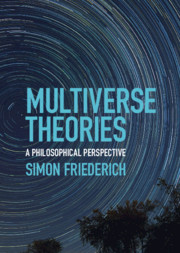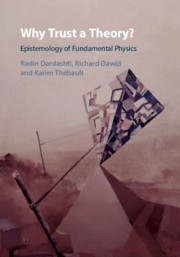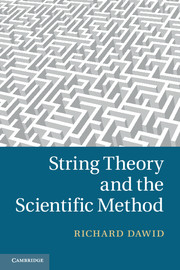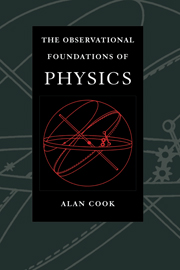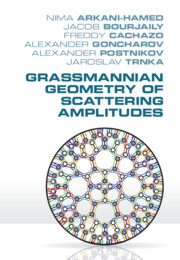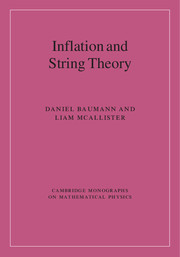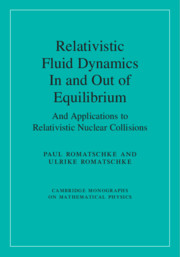Multiverse Theories
A Philosophical Perspective
$71.99 (C)
- Author: Simon Friederich, Rijksuniversiteit Groningen, The Netherlands
- Date Published: March 2021
- availability: In stock
- format: Hardback
- isbn: 9781108487122
$
71.99
(C)
Hardback
Other available formats:
eBook
Looking for an examination copy?
This title is not currently available for examination. However, if you are interested in the title for your course we can consider offering an examination copy. To register your interest please contact [email protected] providing details of the course you are teaching.
-
If the laws of nature are fine-tuned for life, can we infer other universes with different laws? How could we even test such a theory without empirical access to those distant places? Can we believe in the multiverse of the Everett interpretation of quantum theory or in the reality of other possible worlds, as advocated by philosopher David Lewis? At the intersection of physics and philosophy of science, this book outlines the philosophical challenge to theoretical physics in a measured, well-grounded manner. The origin of multiverse theories are explored within the context of the fine-tuning problem and a systematic comparison between the various different multiverse models are included. Cosmologists, high energy physicists, and philosophers including graduate students and researchers will find a systematic exploration of such questions in this important book.
Read more- The first book-length treatment of multiverse theories in philosophy of physics
- Author holds research-level expertise in both physics and philosophy, and is a neutral party in the multiverse debate
- Gives a thorough overview of the complicated and diverse literature on fine-tuning for life including the philosophical debate
Reviews & endorsements
‘In recent years multiverse theories have attracted a great deal of attention among physicists, promising simple resolutions to fundamental long-standing problems. Philosopher of science Simon Friederich provides here a valuable, careful examination of these claims and their relation to testable science. The problems posed by the advent of such theories that arguably cannot be shown to be wrong seem to be here to stay. Friederich's comprehensive and even-handed account of all sides of the question of where we are now with this new sort of science has an important role to play.’ Peter Woit, Columbia University
See more reviews‘Friederich offers an excellent even-handed philosophical discussion of multiverse theories. By providing the first single-authored philosophical book on the topic, he moves multiverse issues towards the center of contemporary philosophy of physics and demonstrates that physical thinking about the multiverse may profit from philosophical considerations. The book will be of profound interest both for philosophers and physicists.’ Richard Dawid, Stockholm University
‘For those who are sceptical or agnostic about a multiverse, this book brings many interesting questions to light, and it certainly issues challenges to the enthusiast. Physicist readers may find the philosophical approach … demanding at times, but the writing is very clear on the whole, with a pleasant style, and Friederich maintains a balanced position among the many different points of view that he addresses … I would certainly recommend this ground-breaking book for any reader who is interested in cosmology.’ Peter J. Bussey, Contemporary Physics
‘The book is well written. I recommend it highly.’ Phillip Helbig, The Observatory magazine
'Friederich (Univ. of Groningen) explores the latter concept in this book, paying particular attention to the meaning of probability as it applies to the possible values of the fundamental constants, the concept of fine-tuning, and the testability of multiverse theories.' A. Spero, Association of American Publishers
‘This book is one of the best introductions to the significance of this topic for theology today. The exhaustive bibliography of science, philosophy,history, epistemology, and mathematics at the end of the volume is, by itself, worth the price of this book.' Nick Overduin, Calvin Theological Journal
‘… Friederich makes a significant up-to-date contribution to the ongoing de-bate surrounding the possible existence of a multiverse, a gigantic, usually infinite, collection of universes. He professes to do so as an unbiased philosopher with no axe to grind, and his treatment does indeed seem a very fair assessment of different sides of the debate.’ Rodney Holder, Science and Christian Belief
Customer reviews
Not yet reviewed
Be the first to review
Review was not posted due to profanity
×Product details
- Date Published: March 2021
- format: Hardback
- isbn: 9781108487122
- length: 210 pages
- dimensions: 250 x 173 x 15 mm
- weight: 0.55kg
- availability: In stock
Table of Contents
Preface
Part I. Setting the Stage:
1. Introduction
2. The fine-tuning considerations
3. Fine-tuning for life and design
Part II. Fine-tuning for Life and the Multiverse:
4. The standard fine-tuning argument
5. Problems with priors
6. A new fine-tuning argument
Part III. Testing Multiverse Theories:
7. Testing multiverse theories: approach
8. Approaching practice
9. Puzzles of self-locating belief
Part IV. Wider Still and Wilder:
10. Other multiverses
11. Outlook
References
Subject index
Author index.
Sorry, this resource is locked
Please register or sign in to request access. If you are having problems accessing these resources please email [email protected]
Register Sign in» Proceed
You are now leaving the Cambridge University Press website. Your eBook purchase and download will be completed by our partner www.ebooks.com. Please see the permission section of the www.ebooks.com catalogue page for details of the print & copy limits on our eBooks.
Continue ×Are you sure you want to delete your account?
This cannot be undone.
Thank you for your feedback which will help us improve our service.
If you requested a response, we will make sure to get back to you shortly.
×
